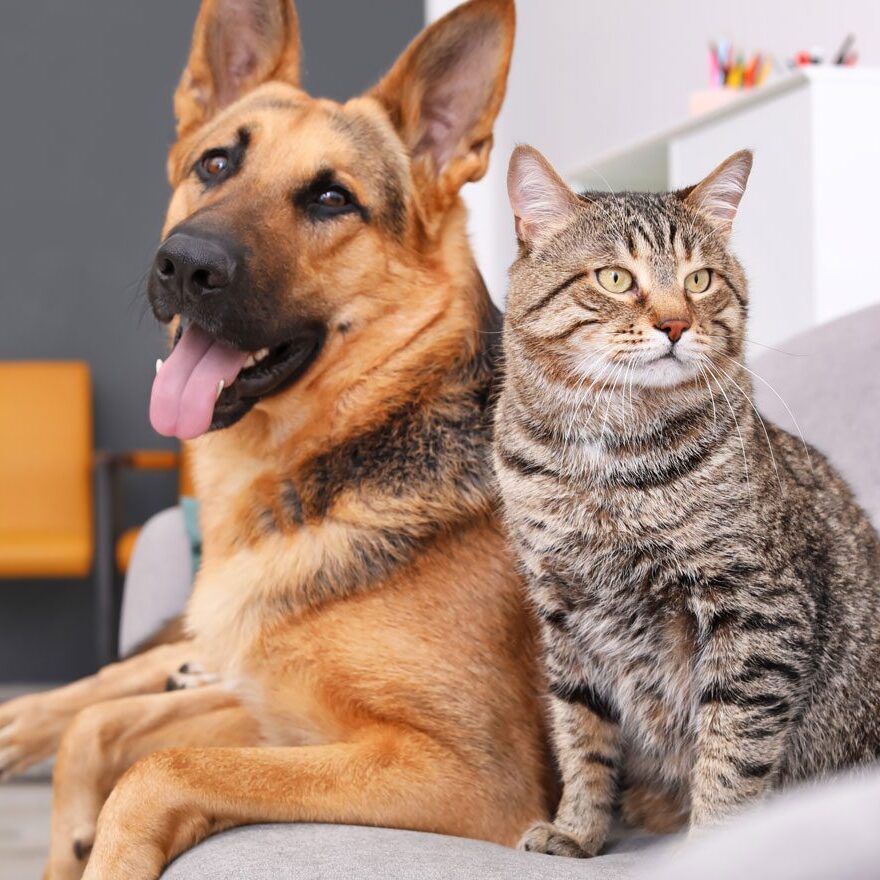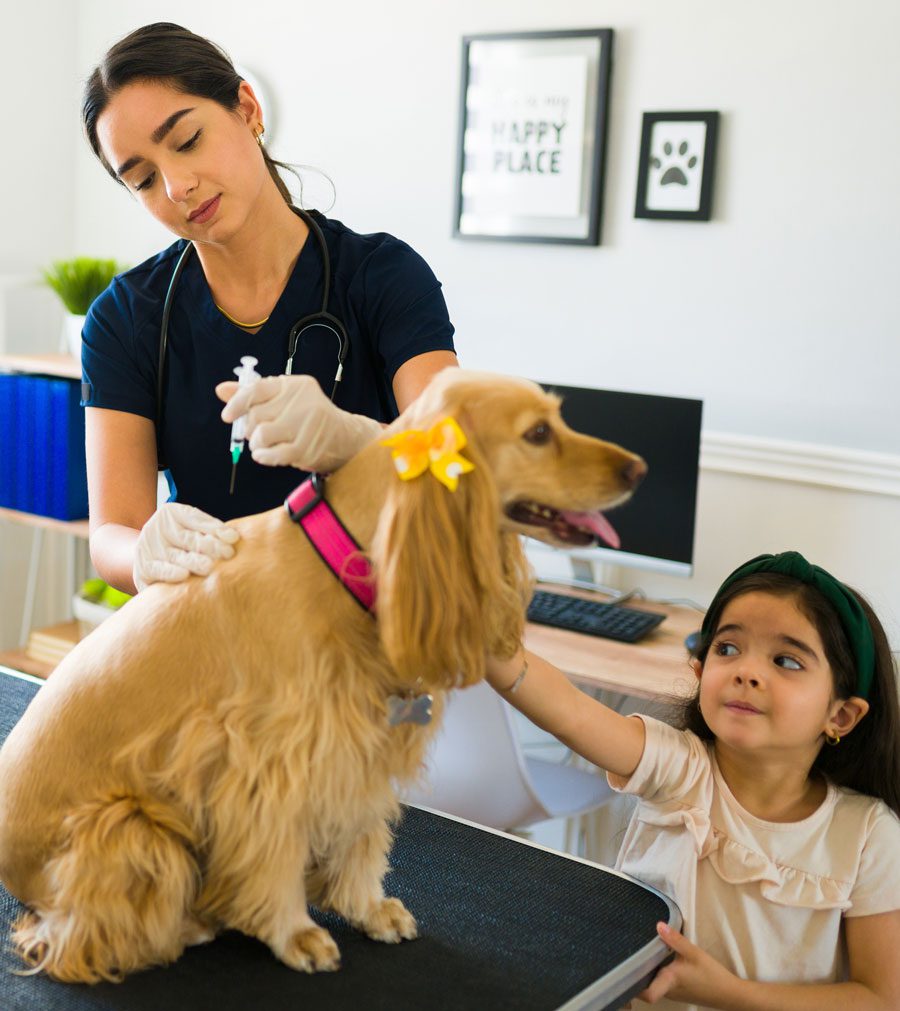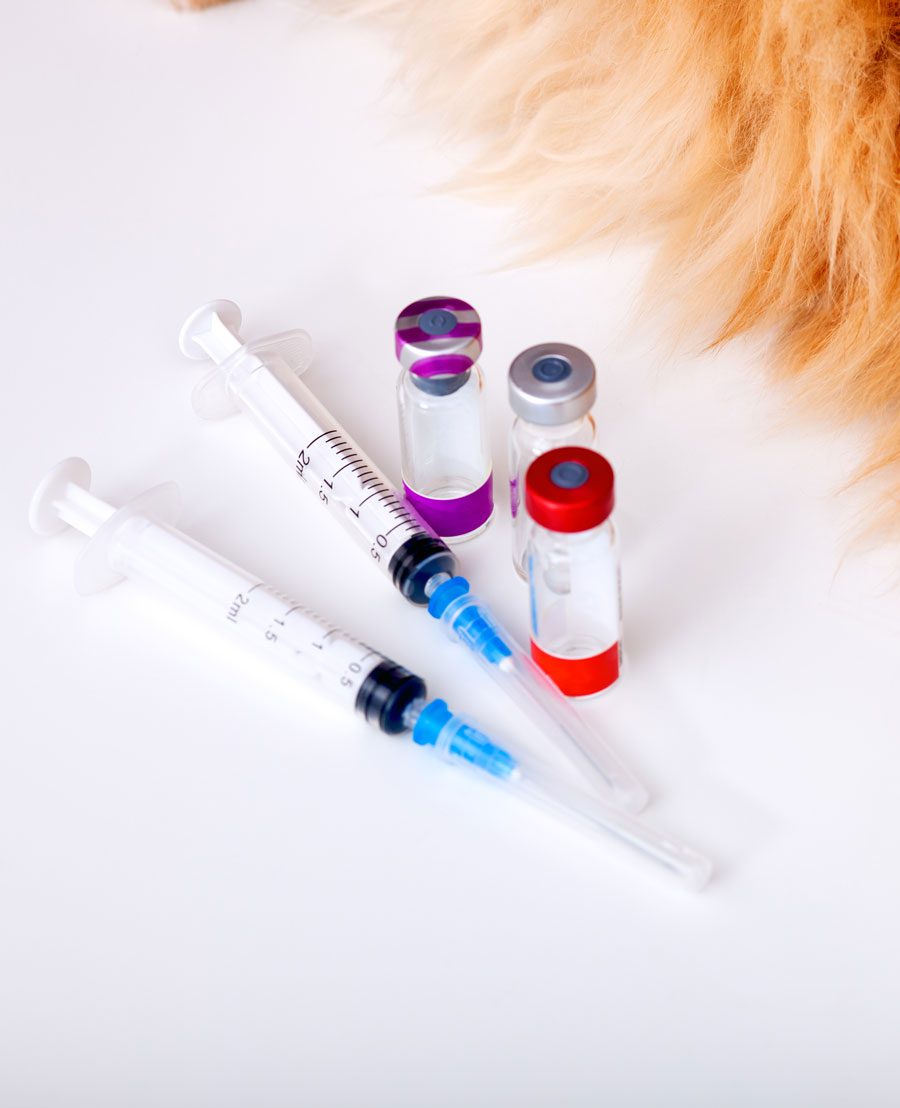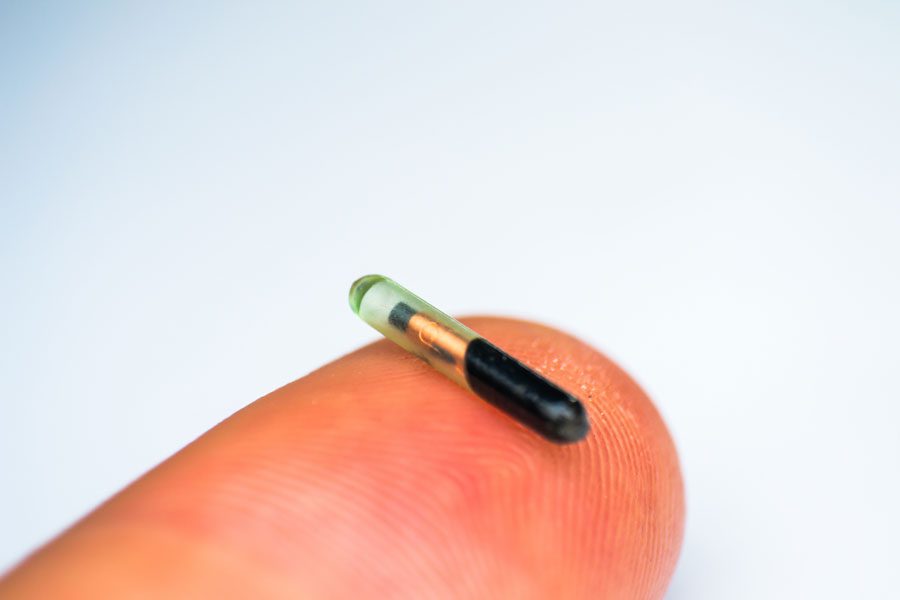Why Vaccinate Your Pet?
Vaccinations are a simple yet essential way to safeguard your pet’s health. They protect against contagious diseases, many of which have no cure, and some that can even be transmitted to people. Puppies and kittens are especially vulnerable because their immune systems are still developing, making early vaccinations critical.
Our veterinary team follows the latest guidelines to ensure your pet receives the right vaccines at the right time. Whether your pet needs their first round of shots or is due for a booster, we’ll create a customized vaccination plan based on their lifestyle and risk factors.


Core Vaccines: Essential Protection for Every Pet
Core vaccines are those recommended for all pets—and some may even be required by law. These provide immunity against highly contagious and potentially fatal diseases.
For Dogs:
Rabies is a fatal disease that affects the nervous system and is transmissible to people,
DAPP (distemper, adenovirus, parvovirus, and parainfluenza) is a combination vaccine that protects against severe respiratory, gastrointestinal, and nervous system diseases.
Leptospirosis protects against a zoonotic bacterial infection that spreads through contaminated water, soil, and wildlife.
For Cats:
Rabies is required by law and protects against a deadly virus that can affect both animals and people.
HCP (Feline Viral Rhinotracheitis, Calicivirus, Panleukopenia) shields cats from serious respiratory infections and a highly contagious, often fatal, gastrointestinal disease.
Lifestyle-Based Vaccines: Extra Protection for Social & Outdoor Pets
Not all pets have the same risks, which is why some vaccines are considered “noncore” but are strongly recommended depending on your pet’s lifestyle.
For Dogs:
Bordetella helps prevent “kennel cough,” a common illness in dogs who socialize at boarding facilities, dog parks, and grooming salons.
Canine influenza prevents highly contagious respiratory infections that spread in places where dogs gather.
Lyme disease is recommended for dogs who spend time in wooded or grassy areas where ticks are prevalent.
For Cats:
Feline leukemia (FeLV) is essential for kittens and outdoor cats, as the virus spreads through saliva, nasal secretions, and close contact with infected cats.


Microchipping: A Lifesaver If Your Pet Gets Lost
Collars and ID tags are helpful, but they can fall off or get lost. A microchip is a permanent form of identification that dramatically increases the chances of reuniting with your pet if they ever go missing. Our microchips are Home Again microchips which enable us to scan your pet to read their temperature during regular visits as well as ID them if they are lost.
The process is quick, simple, and no more painful than a routine vaccination. A tiny chip—about the size of a grain of rice—is implanted just under the skin, usually between the shoulder blades. If your pet is found, a veterinary clinic or shelter can scan the chip and access your contact information, ensuring they get back to you as quickly as possible.
We strongly recommend microchipping all pets, even those who live primarily indoors. Accidents happen, and having this extra layer of security can make all the difference in bringing your pet home safely.
